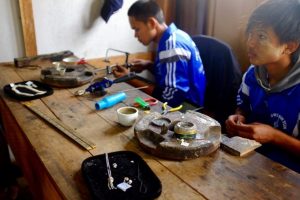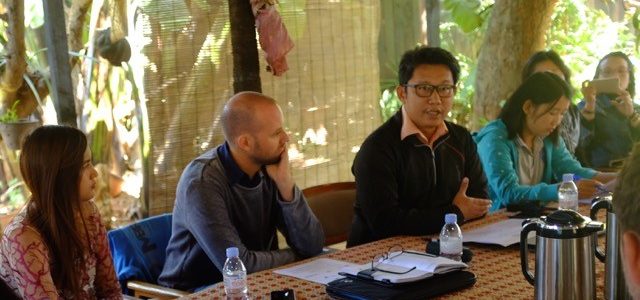Recruitment of Children into Armed Groups in Conflict-Affected Areas
The recruitment of children into armed forces in Myanmar has been one of the most tragic consequences of the conflict in rural areas, aggravated by socioeconomic factors and the pressure on non-state actors to recruit members. Armed opposition groups operating in Southern Shan State have been known to recruit children, according to several independent reports.
EMC research – commissioned by the ILO – is contributing to the ongoing effort to help children previously associated with armed conflict and to prevent the recruitment and use of children in armed forces in Myanmar. In collaboration with independent consultant Benjamin Konstanzer,
EMC used conflict-sensitive approaches to identify economic opportunities for children and youths in conflict-affected areas of Southern Shan State. The resulting report examines the impact that interventions can have on the dynamics of conflict, prioritizing those that promote peace while accounting for existing social and financial constraints.

South Shan youth learning vocational skills
In recent years, several ceasefires have been signed in southern Shan State. However, the legacy of conflict has left a scar on local communities. Social services are lacking or insufficient, drug abuse is rife, and the activities of State and non-state military actors continue to affect the livelihoods of civilians.
The report finds that off-farm employment opportunities and access to information about jobs in Shan State are extremely limited. Entrepreneur s find it difficult to recruit reliable and motivated staff, and when they hire, they tend to rely on personal networks, which reinforces ethnic divisions. International migration, especially to nearby Thailand, has therefore become a preferred livelihood strategy for youth in southern Shan State.
In order to increase the employability of youth, EMC has developed an array of recommendations, including:
- Improving basic skills, such as literacy and numeracy, by teaching in the local language and ensuring that content is appropriate to the local context;
- Teaching English, which is an important language in the growing tourism sector and could be a possible contributor towards social mobility and employability;
- Develop farmers’ negotiation skills and help organize cooperatives to increase their bargaining power;
- Entrepreneurship training to meet growing demands within rural areas for basic services, such as motorcycle and phone repairs, and sewing.
We completed this project under the Peace & Reconciliation and Development Project. This is a four year, EU funded project aims to contribute to peace, reconciliation and development in Shan State, northern Myanmar through the empowerment of conflict-affected communities. ILO is the lead agency for this project in a project consortium that includes Save the Children, The Foundation of Local Development, AIDS Support Group and Maggin Development Consultancy Group.

Comments are closed.